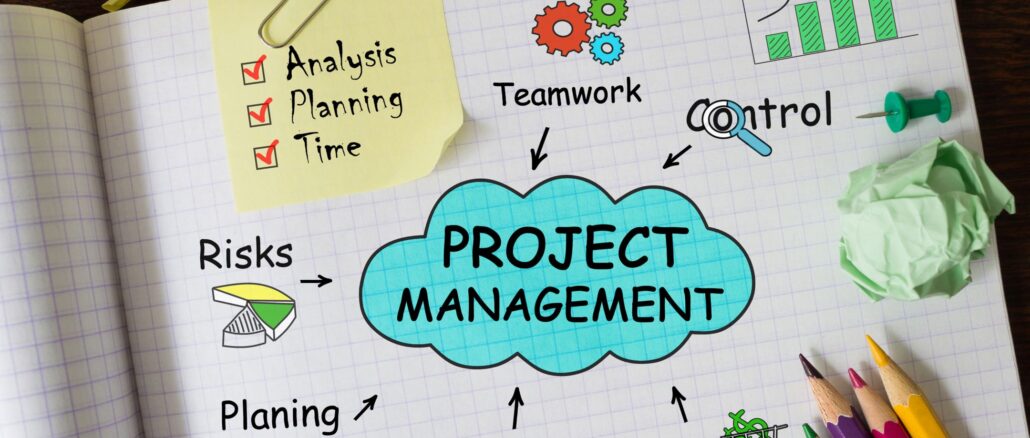
Are you struggling to keep your team on track and hitting deadlines? Well, as a project manager, boosting productivity should be your priority. But with so many things to juggle, it’s not always easy to get everyone working at their best.
Luckily, this article explores essential project management tips to help you enhance your team’s productivity. Read on!
Set Clear Goals and Expectations
Before you start looking for areas to improve your team’s output, you’ll need a clear roadmap. These goals act as your compass, guiding everyone toward success. When you lay out what you need to achieve, your team can focus their energy where it counts.
To do this, break big projects into smaller, manageable tasks and then assign them based on strengths and skills. Consider using task planners from reliable providers, such as Tom’s Planner, for daily tasks. This will help boost efficiency and morale; people tend to perform better when they work in areas where they excel.
When setting your goals and expectations, keep in mind that timing is crucial. Set deadlines that challenge your team without causing burnout. Find that sweet spot between pushing for progress and maintaining a sustainable pace.
Well-defined project objectives will give you direction and ensure your team’s productivity. It forms the foundation upon which you can build all other productivity enhancements.
Leverage Technology
Technology can be a powerful tool for enhancing your team’s efficiency. By implementing the right tools, you can streamline workflows, improve communication, and ultimately boost productivity.
Task management apps are essential for organizing and tracking projects. They allow you to visualize deadlines, assign responsibilities, and monitor progress—no more confusing email chains or lost sticky notes!
To facilitate seamless communication, consider using instant messaging platforms. Create dedicated channels for different projects or teams. This way, you can share files, brainstorm ideas, and quickly resolve issues without overloading inboxes.
Virtual whiteboards are invaluable for collaborative brainstorming and idea generation. Additionally, time tracking can help identify productivity patterns, while AI-powered assistants can automate routine tasks.
Note that the key is to select tools that align with your team’s needs and working style. Choose the right project management tools that can integrate seamlessly with your existing management software to avoid disruption. Also, make sure they’re user-friendly to make it easier for your team to use them.
Foster Open Communication

A good project manager knows that creating a culture of open dialogue is essential for a successful project. Encourage honest and frequent sharing of ideas, concerns, and feedback. This transparency fuels innovation, team member engagement, and problem-solving.
You can also hold regular check-ins, whether in person or online, and mix them up with quick daily stand-ups and more in-depth weekly discussions. During these sessions, try fun icebreakers to get everyone talking. For instance, starting meetings with a “win of the week” or a creative challenge can spark conversation.
Make yourself accessible, too. Let your team know you’re open to their thoughts and questions. Whether it’s an open-door policy or a dedicated communication channel, show that you value their input.
Finally, listen actively and act on feedback. If someone suggests a process improvement, give it a trial run. When project team members see their ideas in action, they’ll be more engaged and productive. So, whatever you do, make sure you create an environment where everyone feels heard and valued.
Empower Your Team
Empowering your team means giving them the autonomy to make decisions. Give them ownership of their work, and watch motivation soar. Instead of hovering, provide the tools they need to excel. For example, let a creative designer choose their software or allow a salesperson to customize their pitch.
Identify each person’s unique talents, match tasks to their skills and passions, and encourage growth by offering new challenges. A junior analyst, for instance, might lead a small project, while a seasoned manager could mentor newcomers.
This increases productivity and builds your team’s confidence. Your team will feel valued and invested in their work. Remember, empowerment isn’t just about delegation—it’s about fostering a culture of trust and growth.
Encourage Work-Life Balance
Your team’s well-being is crucial to success. So, help staff members find a balance between work and personal life to avoid burnout and boost productivity.
Start by teaching them smart time management. Encourage short breaks throughout the day, like a quick walk or chat with colleagues. Next, set realistic deadlines to prevent late nights at the office. One way to do this is by implementing a “no work emails after hours” policy or offering flexible schedules to accommodate different working styles.
Additionally, show your team that you value their personal time by respecting their vacations and weekends. Consider starting a monthly “Hobby Spotlight” where team members can share their passions outside work. This fosters a culture that values the whole person, not just the team member.
And what do they say about leading by example? Take your lunch break away from your desk and leave the office on time occasionally. Your actions can help set the tone for the team, and a well-rested, happy team consistently outperforms stressed, overworked individuals.
Conclusion
Boosting team productivity isn’t just about implementing the latest tools or pushing harder for results; it’s about creating an environment where your team can thrive. By focusing on these strategies, you’ll create a high-performing team that delivers exceptional results. Remember, every team is unique. Experiment with different approaches to find what works best for your group. The key is to evaluate and adapt your strategies to ensure continuous ongoing improvement.

